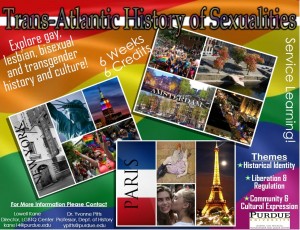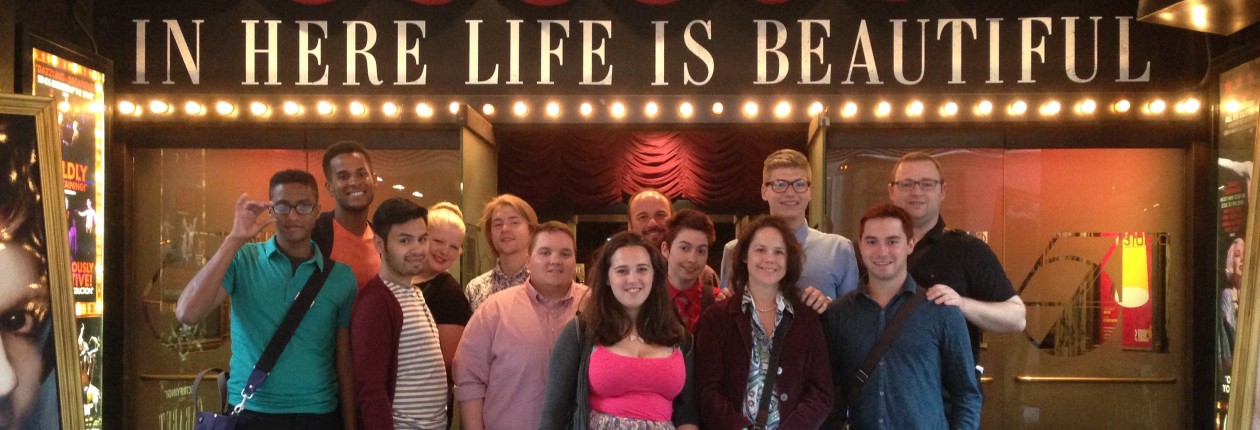
Six-Week Summer Term, 2014 (May 19 – June 28, 2014)
Travel Dates: May 31 – June 15, 2014
People never simply have sex; at some level of consciousness, they interpret their behavior in terms of their own and their culture’s attitudes toward sex. . . .the meanings ascribed to sex vary from one culture to another, from one place to another, and from one time to another. Historian Richard Godbeer (1995)
WELCOME TO OUR COURSE BLOG! From this website, we will share our reflections, ideas, knowledge, research, emotions, hopes, plans, projects, photos, video clips, questions, and our overall experience as active learners in this study abroad. This site is DYNAMIC and we encourage YOU to provide us with feedback by leaving comments and questions during this experience. Don’t be shy…we sure aren’t!
Some background about this study abroad:
This six week, six credit hour experience is a collaboration between Dr. Yvonne Pitts (Associate Professor, Depart of History), and Mr. Lowell Kane (Director, LGBTQ Center – Division of Diversity and Inclusion).
This course explores LGBTQ history and culture from the eighteenth to the twenty-first centuries in three cities: New York City, Paris, France, and Amsterdam, Netherlands. Taking a comparative approach, we examine the changing meanings of same-sex sexual desire, acts, and identities. We will uncover and recover how people formed communities around shared sexual and gender identities and how those communities developed and survived, often in the face of devastating, often violent, social, legal, and economic oppressions.
We will focus on three major themes:
1. Historical identity
2. Liberation and regulation
3. Community and cultural expression
Learning Outcomes:
1. With intense academic classroom instruction and an immersive cultural experience students will connect how historical dynamics shape present realities.
2. Students will gain a comparative, international experience, which will challenge assumptions about the historical invisibility of LGBTQ communities and historical sexual diversity.
3. Students will see first-hand how historical systems of sexual oppression inform contemporary attitudes and social problems through service learning.
4. Students will engage in service learning experiences designed to encourage future activism and community involvement.
